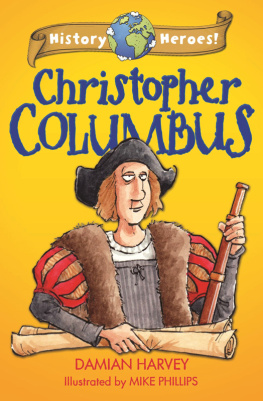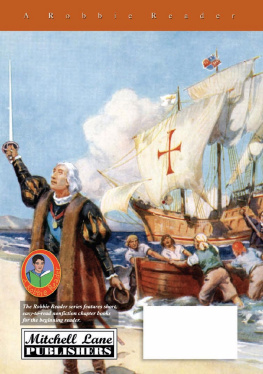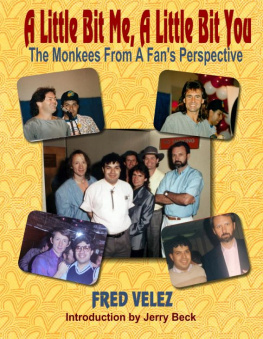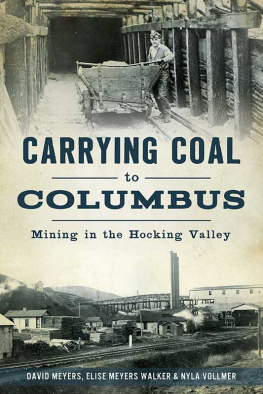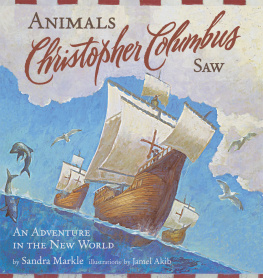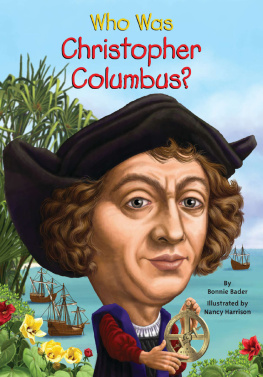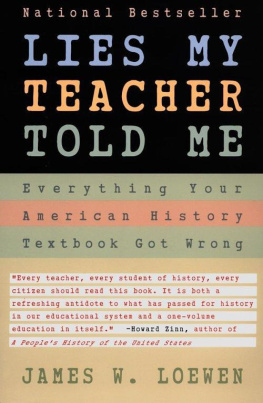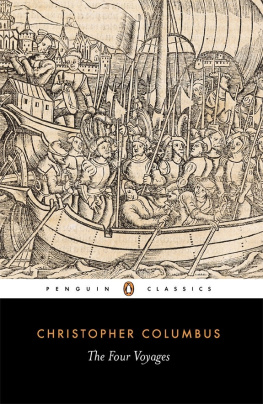THE LEGACY OF CHRISTOPHER COLUMBUS IN THE AMERICAS
The LEGACY of CHRISTOPHER COLUMBUS in the AMERICAS
New Nations and a Transatlantic Discourse of Empire
ELISE BARTOSIK-VLEZ
Vanderbilt University Press
NASHVILLE
2014 by Vanderbilt University Press
Nashville, Tennessee 37235
All rights reserved
First printing 2014
This book is printed on acid-free paper.
Manufactured in the United States of America
Library of Congress Cataloging-in-Publication Data on file
LC control number 2013007832
LC classification number E112 .B294 2014
Dewey class number 970.01/5
ISBN 978-0-8265-1953-5 (cloth)
ISBN 978-0-8265-1955-9 (ebook)
For Bryan, Sam, and Sally
Contents
Acknowledgments
Many people helped me as I wrote this book. Michael Palencia-Roth has been an unfailing mentor and model of ethical, rigorous scholarship and human compassion. I am grateful for his generous help at many stages of writing this manuscript. I am also indebted to my friend Christopher Francese, of the Department of Classical Studies at Dickinson College, who has never hesitated to answer my queries about pretty much anything related to the classical world. His intellectual curiosity and commitment to academic inquiry is inspiring. I thank him for meticulously reviewing many of the translations from Latin in this book and for making helpful comments on the drafts of my essay regarding Peter Martyr.
I wish to thank Eli Bortz at Vanderbilt University Press for his faith in this project. I also thank Sue Havlish, Joell Smith-Borne, and copyeditor extraordinaire Laura Fry at Vanderbilt. I am also grateful to Silvia Benvenuto for the index. A special thanks to the anonymous readers whose careful reading significantly improved this book.
Thank you to Ken Ward, librarian at the John Carter Brown Library, for scrounging up all kinds of gems for the sake of intellectual inquiry and friendship. I am also grateful to Cristbal Macas Villalobos at the Universidad de Mlaga for helping me understand more about the Romans and their language.
I wish to thank Dickinson College and the Dickinson College Research and Development Committee for its generous financial support of this project and to my colleagues at Dickinson who make this a vibrant intellectual community. Thank you to Kristin Beach and Ursala Neuwirth, my Dana Research Assistants funded by Dickinson. I am grateful to the library staff at Dickinson, especially Tina Maresco and everyone in the interlibrary loan office. Thank you also to the cheerful and efficient Jennifer Kniesch, Visual Resources Librarian at the Art and Art History Department, for helping me locate images and secure permission to use them.
I have benefited much from the generosity and insight of many fellow colleagues who have willingly shared material and/or their work over the years, including Scott Breuninger, Lina del Castillo, Karen Racine, and fellow Columbus scholars Jenny Heil and Carol Delaney.
I thank many friends and colleagues who have shared their expertise with me at various points in the development of this book, as well as those who have commented on various bits (long or short) of the manuscript. These include Sandra Alfers, David Boruchoff, Deirdre Casey, Stelio Cro, Lucile Duperron, Stephen Fuller, Heather Hennes, Christopher Lemelin, Jim Muldoon, Tony Moore, Sharon OBrien, Jeremy Paden, Linda Shoppes, Joel Westwood, Bob Winston, Amy Wlodarski, Margarita Zamora, and Nadine Zimmerli.
To my dispersed circle of friends throughout the world, some also included above, I am a better person for your friendship: Katie, Jeff, Becky, Nancy, Tara, Victoria, Dana, Isabel, ngeles, Emily, Sarah, Jimmy Mac, Bobby, and Jorge. Thank you to my parents, Barbara and George. I could not have written this book without years of support and encouragement, not to mention countless hours of shared laughter and parenting, from my best friend Bryan. And to Sam: thank you for wanting to learn and for reminding me to look at the sky.
THE LEGACY OF CHRISTOPHER COLUMBUS IN THE AMERICAS
Introduction
Why is the District of Columbia, the capital of the United States, named after Christopher Columbus, a Genoese explorer commissioned by Spain who never set foot on the future US mainland? Why did Spanish Americans in 1819 name the newly independent republic Colombia after Columbus, the first representative of the Spanish Empire from which political independence was recently declared? This book answers these questions.
Christopher Columbus introduced the Old World to the New World and thereby changed the course of history and marked the beginning of modernity. His accidental discovery of the New World in 1492 began the process by which European culture and institutions were transmitted to the Western hemisphere, which in turn also deeply influenced Europe. It also initiated the overseas extension to the greater Atlantic world of long-standing European imperial rivalries and caused the forced migration of massive numbers of people, the genocide of indigenous peoples and cultures, the ecological modifications of plants and animals, and the environmental destruction of New-World landscapes. Such is Columbuss legacy.
At the end of the fifteenth century, Portugal and the Crown of Castile, the distinct state formed in 1230, had long been developing programs of overseas expansion along the coast of Africa. If it had not been Columbus in 1492, it would likely have been some other adventurer who would have claimed the New World for the Old at some point, probably in the sixteenth century. But it was Columbus who first took possession for Castile of the island of Guanahan on 12 October 1492, and he thence became the emblem of Spains overseas empire, the largest the world had ever seen up to that point. In more general terms, he became a symbol of Europes imperial conquest and colonization of the rest of the Western world.
Columbuss association with empire, something he consistently emphasized in his own writings, remained intact after his death, as many authors who wrote about him portrayed him as an imperial servant, some even describing him as a new version of Aeneas, Virgils famous founder of Rome. The main argument of this book is that centuries after Columbuss death in 1506, the figure of Columbus was appropriated by nationalists in the Americas in ways that reveal how they viewed their new independent nation-states in relation to old political typologies of empire. The embrace of Columbus as an imperial figure in New-World republics that claimed political independence from Old-World empires shows the ideological imperial underpinnings of their new nation-states.
Placing the figure of Columbus, as he appears in the Americas in nationalist discourses of the eighteenth and nineteenth centuries, within the context of the centuries-long tradition of Columbus interpretation preserves the crucial association between Columbus and empire that the admiral himself sought to forge and that writers after him perpetuated. In turn, this allows us to view the independence and early republican periods of the region through an empire-based lens, which reveals how American representations of Columbus worked to integrate older discourses of empire alongside newer discourses about the nation-state. In this context, to take one example, the naming of the District of Columbia, the capital of the United States, after Columbus in 1791 reflects the significance of empire in the construction of the new nation-states of the Americas. Empire was indeed on Americans minds. In fact, the desire for territorial expansion and the belief in the right to expand westward over the whole American continent was evident even in the charters of five of the original thirteen English colonies that designated their western boundaries as the Pacific Ocean. Later, George As historian Eran Shalev has recently shown in his well-documented study,


